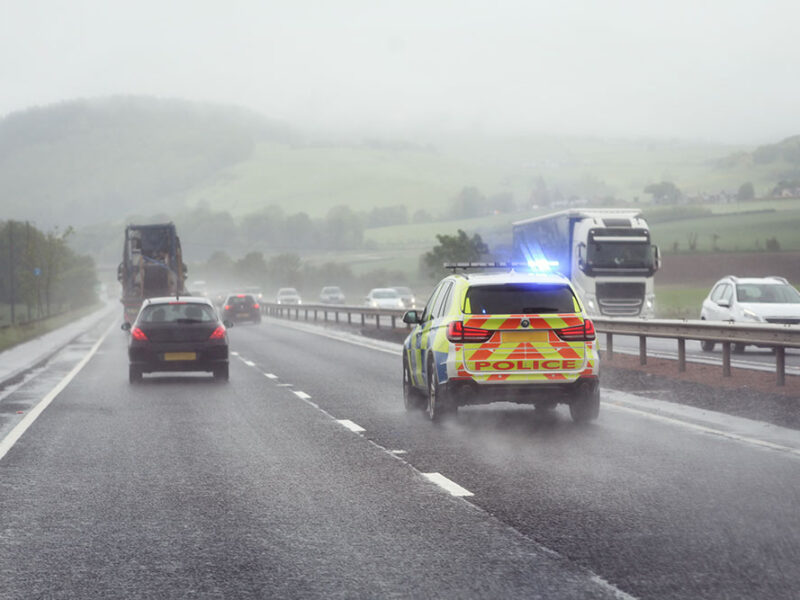Once again, the Senior Traffic Commissioner has updated his guidance to goods and passenger vehicle operators, with the latest update being issued on 6th April 2020. The complete and up to date document can be found here.
The 6th April update focusses exclusively on the position relating to furloughing Transport Managers. In particular, the additional detail recognises that there may be a number of scenarios which may lead to an agreement to furlough a Transport Manager, and that an individual operator's position - and what is expected in terms of notifying the Traffic Commissioner - may differ, depending on the facts.
Most fundamentally, the update makes clear that the conditions of an operator's licence require that the Traffic Commissioner should be notified of material changes to any operation, including a change to the operator's ability to demonstrate professional competence.
However, the update goes on to provide some helpful worked examples:
- In some circumstances, an operator may have been forced by the circumstances to lay up an entire licensed fleet. Plainly if no vehicles are in operation, there is no requirement for a Transport Manager to exercise continuous and effective management - so a Transport Manager furloughed in these circumstances (i.e. when there are simply no vehicle operations to manage) is not something that the Traffic Commissioner would expect to be advised about.
- Where operations have been reduced with the effect that some vehicles have been parked up and therefore some Transport Managers are furloughed (most likely to be the case in much larger operations), then the Traffic Commissioner would expect to be notified and details of the alternative present arrangements must be set out.
- Where an operator intends to continue operating, but attempts to furlough its only Transport Manager (or all of its Transport Managers), then the Traffic Commissioner must be notified immediately and the operator must apply for a period of grace or seek a temporary exemption, in order to continue to operating without a Transport Manager - the default requirement for standard licence holders to demonstrate professional competence remains in place.
If you have any queries or concerns relating to furloughing Transport Managers, or any other aspect of operator's licensing in these unprecedented times, please do not hesitate to get in touch with us by calling 01279 818280 or clicking here to send an email.

More News and Insight

Walkaround Checks – Where Road Safety Starts
Every day, often before the sun is above the horizon, hundreds of thousands of commercial vehicles are started up by their drivers and then they head out on to the UK’s road network to transport goods or passengers from one point to another, often with demanding time constraints thrown into the mix…

Traffic Commissioner’s Annual Report 2024/25: “Don’t Look Back in Anger”
Time has flown by and once again we find that the schools are back after the long summer break and the Office of the Traffic Commissioner has issued its annual report to the Secretary of State, providing a review of the year…

An Apple a Day to Keep the DVLA Away – A review of the DVLA’s Rules on Health Checks for Professional Drivers
There has been some discussion in the industry trade press recently that has highlighted proposed changes to how the disease of diabetes is monitored in professional drivers by the DVLA. One article in RouteOne Magazine stated that…

Light Goods – Heavyweight Industry: The DVSA’s New LGV Strategy
While relatively small in overall physical size light goods vehicles (LGVs) are now a large part of the UK road transport industry. There are currently estimated to be over 5.1 million light goods vehicles on UK roads today…

Employment Law Update – A tale like Scylla & Charybdis
Operators currently face their own real time nightmare in the form of a modern day version of the Greek mythological tale of Scylla and Charybdis (where sailors faced a narrow strait through which they had to pass which had a monster on one side and a whirlpool on the other!)…

Labour Government – Employment Rights Bill – What Will It Mean for Transport Businesses?
In October 2024 the Deputy Prime Minister, Angela Rayner set out her intention to reform the employment rights held by employees in the UK. In a press release issued at the time she is quoted a saying…

Revisiting the DVSA’s Guide to Maintaining Roadworthiness
In April 2025 the Driver & Vehicle Standards Agency (DVSA) issued the latest edition of its Guide to Maintaining Roadworthiness.

The Wheels on the Bus go Round & Round….but how do they Stop?
At the tail end of 2024 a Public Inquiry was held in front of Traffic Commissioner Kevin Rooney where the subject of brake maintenance practices was called into question…

Maintenance Provision Rating Scheme for Commercial Vehicle Workshops is Launched
One of the key tenants of running a commercial vehicle operation, whether ‘HGV’ or ‘PSV’ is that the maintenance of the vehicles is paramount. For some operators this will mean having their own maintenance facilities and teams to look after their fleet of vehicles in house, but the majority of operators in the UK are reliant on 3rd Party maintenance providers…

Changes to Brake Safety Inspections for Commercial Vehicles – April 2025
In April 2025 the brake testing regime guidance will change. Roller Brake Tests, that have been mandatory for years, will be joined by an Electronic Break Performance Monitoring System or EBPMS…

Case Study – Public Inquiry for Gillbard Plant, Autumn 2024
Gillbard Plant was called to Public Inquiry in Autumn 2024. The hearing made headlines in the transport press due to the element of “DVSA Poacher turned Game-keeper” of Gillbard Plant’s Transport Manager, Mr. Anthony Brayley-Willmetts, a former DVSA (VOSA) examiner turned transport consultant…

DVSA Load Security Guidance – Updated December 2024
When carrying loads on lorries every HGV Operator knows how important it is to ensure that goods are secured safely so that they arrive at their destination in good condition and that they do not cause any damage or danger on the UK’s roads during the process of transporting them…
